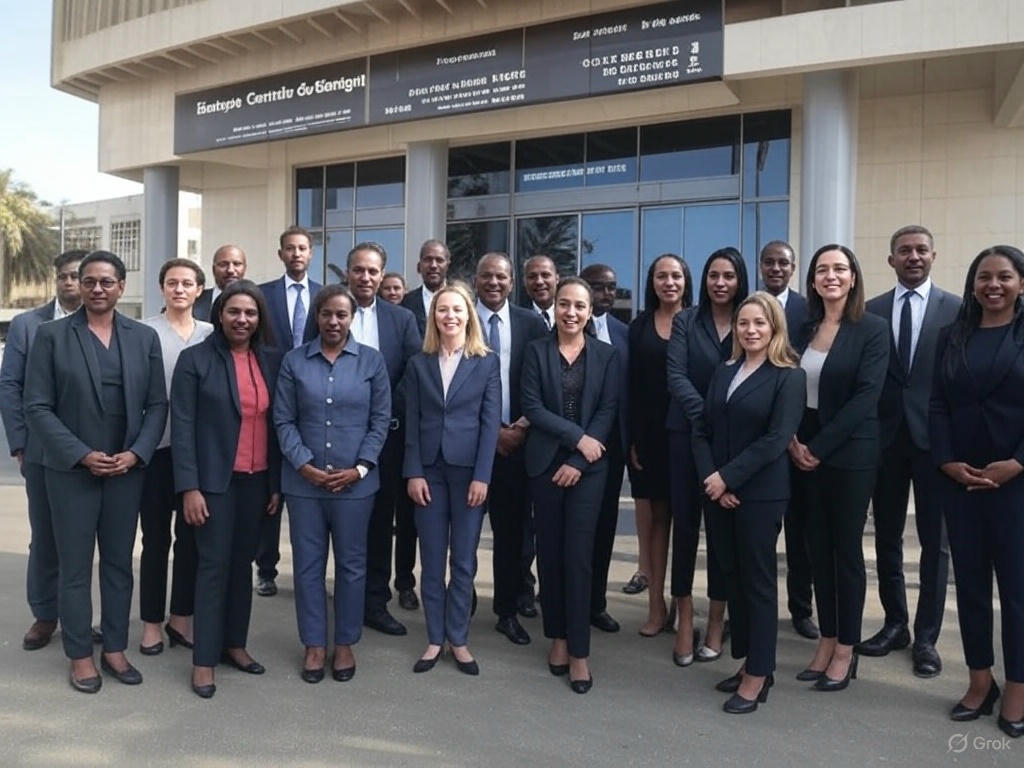SAN SALVADOR — El Salvador, the first country in the world to adopt Bitcoin as legal tender, is nearing a deal with the International Monetary Fund (IMF) aimed at stabilizing its economy, according to recent statements from an IMF official. The agreement is part of a broader effort to balance the country’s ambitious embrace of cryptocurrency with fiscal reforms. However, Bitcoin remains a focal point in the talks, raising questions about its risks to financial stability.
An Agreement on the Horizon?
The Salvadoran government’s discussions with the IMF have been ongoing for months, with both sides working toward an agreement that would include a set of policies to stabilize the nation’s economy. “IMF staff have an ongoing engagement with the Salvadoran authorities,” said Ms. Kozack, an IMF spokesperson, during a recent press briefing. “The objective is to reach agreement on a new IMF-supported program that would help with macroeconomic stabilization and adjustment and also growth-enhancing reforms.”
While there is optimism, a timeline for finalizing the agreement remains unclear. Ms. Kozack refrained from providing specifics, saying only that discussions are focused on “policies to strengthen reforms that can be used to boost productivity and economic governance.”

Ms. Julie Kozack is the head of the Communications Department (COM) at the International Monetary Fund.
Bitcoin at the Heart of the Talks
Bitcoin, once hailed as a solution to financial inclusion and economic independence, is at the center of the IMF’s concerns. The cryptocurrency’s volatile nature has raised alarm bells about its potential impact on El Salvador’s financial health, particularly as the country has integrated Bitcoin into everyday transactions and its public finances.
“Addressing risks arising from Bitcoin is a key element of these discussions,” Ms. Kozack said, underscoring the IMF’s cautious stance. The Fund has recommended that El Salvador limit public sector exposure to Bitcoin and strengthen the regulatory framework around its use. Additionally, the IMF has called for a narrowing of the scope of the Bitcoin Law, which made Bitcoin legal tender in 2021. This could mean limiting the extent to which the cryptocurrency is used across sectors of the economy.
The IMF’s recommendations reflect a broader concern that Bitcoin’s volatility could disrupt El Salvador’s economic stability, which relies heavily on external financial support and remittances from abroad.
Tightening the Budget Belt
Alongside Bitcoin, the IMF has also placed a spotlight on El Salvador’s 2025 draft budget, which includes measures to contain spending. “The recently presented 2025 budget represents a step in strengthening public finances,” said Ms. Kozack.
The budget aims to curb public sector wages and reduce spending on goods and services. However, Ms. Kozack stressed that the plan would require strong implementation to meet its objectives, a challenge that El Salvador has faced with previous reforms.
Public Wages and Energy Subsidies
Another significant hurdle to an IMF deal is the country’s large public sector wage bill and its extensive energy subsidies. These programs, while popular domestically, pose risks to long-term fiscal health.
Although the IMF did not explicitly outline specific requirements on these matters, they are expected to be part of the broader fiscal reforms El Salvador will need to adopt if an agreement is reached.
A Precedent in the Making?
For President Nayib Bukele, Bitcoin’s integration into El Salvador’s economy is a defining achievement, a bold experiment that has drawn both praise and criticism. The world is closely watching how this chapter in global finance unfolds. The IMF’s cautious stance on Bitcoin contrasts with the president’s enthusiasm for positioning El Salvador as a global crypto hub.
The discussions between El Salvador and the IMF could set a precedent for other nations considering the adoption of digital currencies. For now, the final outcome of these negotiations remains to be seen, with both parties working toward an agreement that balances innovation with economic stability.
Conclusion:
As El Salvador continues its journey as a crypto pioneer, the challenges posed by Bitcoin remain a sticking point in its negotiations with the IMF. While a deal may be close, the country’s embrace of digital currency could shape the future of global financial policy.




